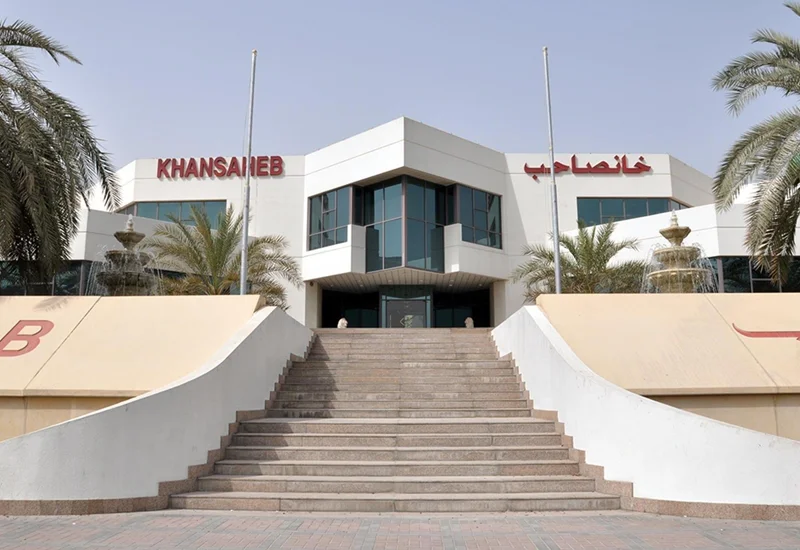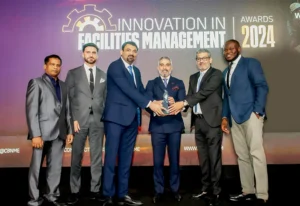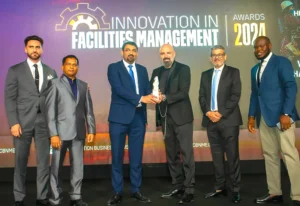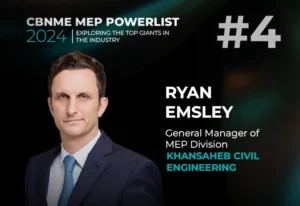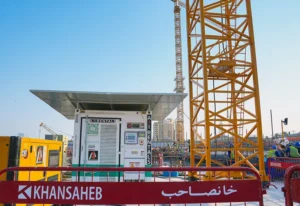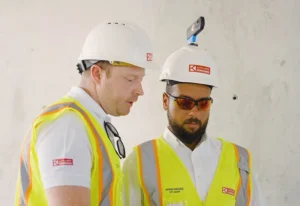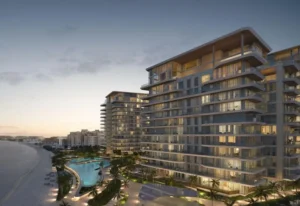The Managing Director of Khansaheb Investment takes us through the history of his family business and its journey from the bottom to the top.
Business is supposedly a dynamic environment where successful firms shine for a few years, until livelier competitors outmanoeuvre them in a constant tussle that spans from being feted to forgotten in less than a generation. Seeing your company evolve from a relative newbie to an established powerhouse, in a matter of years, can be very fulfilling. But, seeing it maintain that stature for generations is inexplicable.
The UAE turns 46 this year. Rather young for a country, isn’t it? It’s hard to imagine it being nothing but acres of desert. Even the piece of land that you’re currently reading this story on used to be a stretch of sand – or a sea if you’re on the Palm Islands. Few will be able to give you detailed accounts of just how much the Emirati nation has changed over the years.
Amer Abdulaziz Khansaheb, Managing Director of Khansaheb Investment, is one of the few. Not because he’s Emirati and has learned about it through his UAE Social Studies’ books – as anyone who grew up here would – but because his company is 83 years old. For those of you who can’t be bothered to do the math, that makes the company 37 years older than the UAE.
Currently the longest-serving contractor in the UAE, Khansaheb was founded in 1935 by Khansaheb Hussain Bin Hassan Amad, Amer’s grandfather’s uncle. “Somewhere in the late Fifties my grandfather took over the reins and now we have about three generations working here,” Amer says. “Currently we have about 12 people from the family.”
The Khansaheb family business started out as a trading and maintenance company that mainly worked with oil companies before Amer’s grandfather, Hussain Abdulrahman Khansaheb, grew the company with an emphasis on construction. In fact, the company was responsible for building the first causeway that connected Abu Dhabi to the mainland in 1952. “Before that, the island could only be accessed during low tide. During the high tide… nothing,” says Amer. Imagine having to sit through that. Sheikh Zayed Road at peak-hour traffic isn’t looking so bad now, is it?
By the Seventies, Khansaheb started facing numerous difficulties in terms of finding the right personnel to lead the company. “Dubai was a desert at that time. It was empty. Who would want to come to that?” says Amer. Fair enough, but the company needs to keep evolving. Enter R.M. Douglas Construction. “The partnership with RM Douglas helped us through a rough time, but we helped them too,” says Amer. “You see, they had the engineers but were struggling to get work. We had a lot of work but didn’t have the right personnel. Plus, they were a family business too. We shared similar ideologies. It was the perfect marriage.”
“I remember building the City Tower on Sheikh Zayed Road,” reminisces Amer. “At the time, it was one of the tallest buildings in the country and we were progressing so fast. We were going at about three floors every week. Even H.H. Sheikh Mohammed Bin Rashid Al Maktoum was curious to find out how we were doing it so quickly.” The secret, it turns out, was a construction method called slip forming wherein concrete is poured into a continuously moving form. This enables continuous, non-interrupted, cast-in-place “flawless” (i.e. no joints) concrete structures that have superior performance characteristics to piecewise construction. Of the many structures that Khansaheb has had a hand in creating over the years – including the likes of Bab Al Shams and the Mall of the Emirates – Amer takes particular pride in the Khan Murjan restaurant at Wafi Mall. “It was my first job as an engineer,” Amer says. “That’s why it will always be close to me.”
Growing up, Amer always knew he would join the family business. It’s what he wanted. When he came back to Dubai after completing his Bachelor’s in Engineering from the University of Beirut, there was no hesitation. He worked in the family business for about a year and a half before moving to Deloitte. There he completed the Chartered Financial Analyst programme that helped him see things from a financial and investment perspective. He soon returned and helped diversify Khansaheb Investments.
Why the time away from the family business though? The whole point of owning a company means you don’t need to work again, right? Wrong. Despite being an owner, Amer had to earn his stars. The problem that then arises is you start at the bottom with no one to really guide you. You become ‘one of them’ and people start to keep you at a distance. “It becomes difficult because you’re not being managed by anyone. There’s no feedback or appraisal. It’s a bit frustrating,” Amer says. “That’s one of the reasons I left. I needed experience outside. It’s precisely why everyone from my generation who’s working here has spent at least one-and-a-half to two years outside the family business.”
On paper, Amer took over Khansaheb in 2012, but there’s a stark difference between what happens on paper and what goes on behind closed doors. “Back then, although I saw many opportunities, I had trouble convincing the people here to see where I was coming from and to invest,” says Amer. “We only broke the ice two years later.” Owner or not, you need to prove your mettle to take a seat at the big table. In time, everyone came around. Amer had to take baby steps. Once he got his first big decision right, he could decide the next order of business. Business has boomed though. “Since January 2014, we’ve delivered four real-estate developments in three years, which is something we’ve never done before,” announces Amer. “We’re even diversifying into healthcare, manufacturing, food and beverage and fitness.”
When he isn’t busy with Khansaheb, Amer takes charge as the President of the Emirates Chartered Financial Accountants Society. The title sounds fancy but again, is a lot of work. “The society has been growing fast. We were about 500 members when I became president. We’re now at 800,” Amer says. “Managing volunteers, who have other jobs, families, and are not paid anything for the work they do on behalf of the society is an interesting experience,” he adds coyly.
Khansaheb isn’t just a construction company anymore but the question remains, with all the competition from counterparts in the construction industry, where does the company see its future and its vision of Dubai?
When posed with this question, Amer takes a minute to gather his thoughts before answering meticulously, “Dubai has grown a lot. It’s time for it to start maturing. By that I mean it’s time to find innovative services, technologies and industries that are geared towards energy efficiency.”

